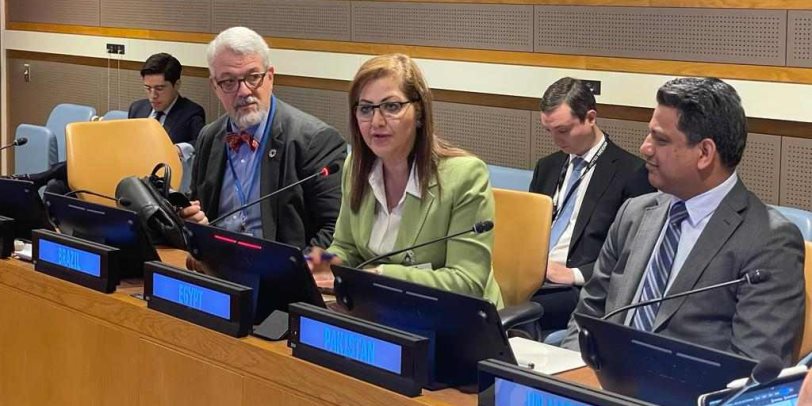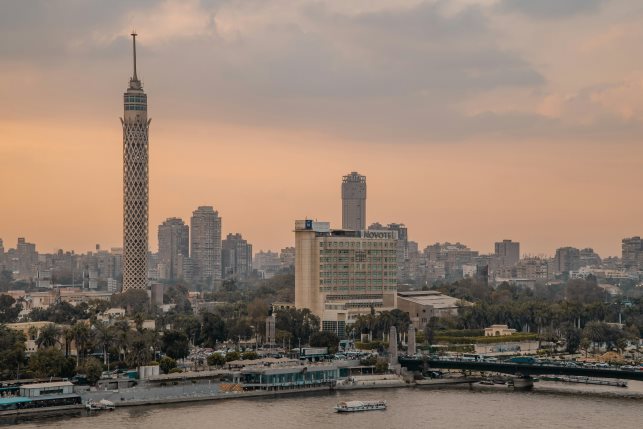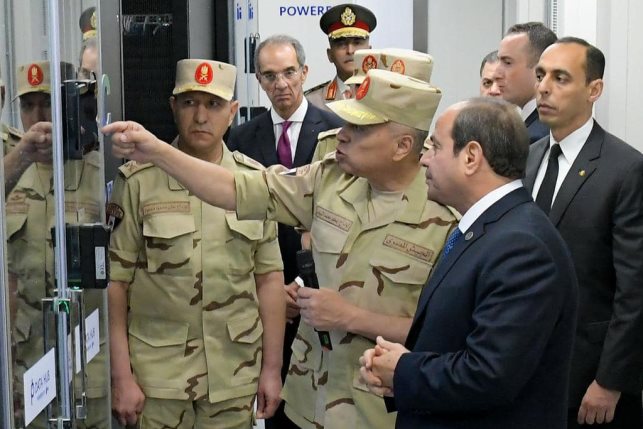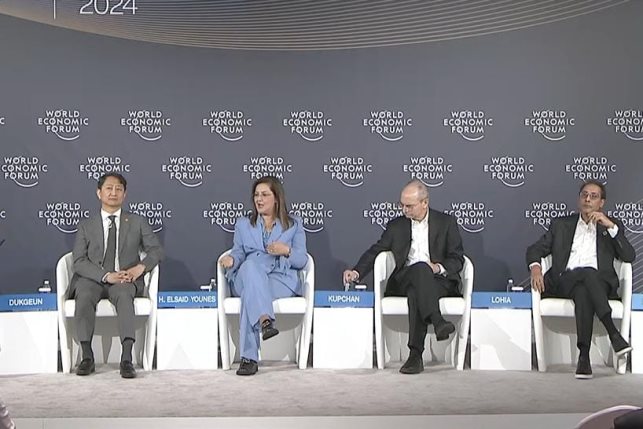Egypt promotes localization ofsustainable development goals at high-level forum
Dr. Hala El-Said emphasized Egypt's commitment to achieving the Sustainable Development Goals since their adoption in 2015.
 Dr. Hala El-Said emphasized Egypt's commitment to achieving the Sustainable Development Goals since their adoption in 2015 - Press Photo
Dr. Hala El-Said emphasized Egypt's commitment to achieving the Sustainable Development Goals since their adoption in 2015 - Press Photo
In collaboration with the Sustainable Development Unit of the Ministry of Planning, the Ministry of Planning and Economic Development organized a side event today titled "Localizing the Sustainable Development Goals 2030 and Accelerating the 2030 Agenda." The event took place on the sidelines of the High-Level Political Forum on Sustainable Development (HLPF) 2023, under the theme "Accelerating Recovery from COVID-19 and Full Implementation of the Sustainable Development Goals 2030 at all levels," from July 10th to July 19th.
The session was chaired by Dr. Ahmed Kamaly, Deputy Minister of Planning and Economic Development, and attended by Maimunah Mohd Sharif, Deputy Secretary-General of the United Nations and Executive Director of UN-Habitat, Ambassador Mohammad Amir Khan, Deputy Permanent Representative of Pakistan to the United Nations, Abdullah Al-Dardari, Assistant Secretary-General and Director of the Regional Bureau for Arab States at the United Nations Development Programme, Antonio Francisco, Special Advisor for International Relations to the Minister of Cities in Brazil, Ricardo Rio, Mayor of Braga, Portugal, and Member of the European Committee of the Regions, and Ferdinand Paraza, Governor of Kakamega County in Kenya.
During her speech, Dr. Hala El-Said emphasized Egypt's commitment to achieving the Sustainable Development Goals since their adoption in 2015. Egypt was among the first countries to develop a national agenda for sustainable development, known as Egypt Vision 2030, which has been regularly updated to align with global changes such as climate change, water scarcity, geopolitical events, and high population growth. She added that the Egyptian government, with support from the United Nations, has adopted the Integrated National Financing Framework (INFF) to formulate a strategy for financing the Sustainable Development Goals in Egypt.
Dr. El-Said stated that Egypt has submitted three voluntary national review reports on sustainable development in 2016, 2018, and 2021, providing a snapshot of the progress made in achieving the Sustainable Development Goals and the challenges hindering their implementation. She highlighted the launch of Egypt's multi-stakeholder platform, "Partnerships for Sustainable Development," an interactive online platform to facilitate effective and continuous documentation of various consultations.
Furthermore, the Minister of Planning discussed Egypt's plan to launch the "Egypt Development Gateway" as part of efforts to enable evidence-based policies, investments, programs, and public discussions. The gateway will serve as a centralized platform that aggregates the latest data and information available, facilitating access for all stakeholders involved in sustainable development.
Dr. El-Said emphasized that in light of the exceptional and unprecedented challenges facing the world, which hinder countries' progress towards achieving the Sustainable Development Goals, it is crucial for all nations to continue implementing their sustainable development plans, particularly at the local level. This ensures the active participation of local communities in identifying gaps, opportunities, and challenges, taking into account the diverse demographic, cultural, social, and economic conditions necessary for comprehensive and sustainable growth.
She highlighted Egypt's commitment to the principle of "leaving no one behind," an integral part of the 2030 Agenda. The Egyptian government places great importance on localizing the Sustainable Development Goals at the provincial level to address developmental gaps, as they represent one form of inequality that must be reduced. Dr. El-Said emphasized that sustainable development cannot be achieved without adopting a bottom-up approach that considers developmental gaps and ensures balanced and equitable spatial development.
The Minister of Planning showcased Egypt's efforts in this regard, including the launch of 27 reports in November 2021 to localize the Sustainable Development Goals in provinces in partnership with the United Nations Population Fund. These reports aim to document the progress and current status of implementing the Sustainable Development Goals in each province. She also mentioned the launch of the Provincial Competitiveness Index in partnership with the Egyptian National Competitiveness Council and the Decision Support and Crisis Management Center at the Cabinet. Additionally, she highlighted the National Initiative for Smart Green Projects, which aims to map smart green projects at the provincial level and find national solutions to climate change issues.
Dr. El-Said further mentioned that, on the sidelines of the COP27 climate conference, the Ministry of Planning announced the hosting of the "Localization of Sustainable Development Goals Center in Cairo." This center focuses on disseminating Egyptian knowledge, encouraging the exchange of expertise and best practices, and promoting research to enhance the localization of Sustainable Development Goals throughout Africa. She expressed Egypt's anticipation to host the 12th World Urban Forum in 2024.
The Minister of Planning outlined the steps taken to prepare local voluntary reports, including a high-level localization workshop involving 13 provinces interested in developing their local reports. This was followed by a readiness questionnaire shared with the provinces to assess their institutional and human capacities, data availability, and experience in preparing similar reports. Based on the results, three provinces (El-Beheira, Fayoum, and Port Said) were selected as the first batch. These provinces hosted workshops for various stakeholders, followed by on-site workshops with local government units, the private sector, youth, and non-governmental organizations. These workshops focused on collecting quantitative and qualitative data and building capacities in monitoring and reporting on the Sustainable Development Goals.
Dr. El-Said stated that the process of preparing local voluntary reports can support policy transformations at various levels. The priorities identified in these reports can guide strategic planning processes and contribute to the allocation of public investments for sustainable development goals. Furthermore, these reports provide data that enable evidence-based decision-making at the provincial and national levels.
The side event organized by the Ministry of Planning and Economic Development sheds light on Egypt's proactive approach to sustainable development and localizing the Sustainable Development Goals. The event's collaborations with international organizations and countries exemplify Egypt's commitment to knowledge sharing, experience exchange, and partnerships for achieving sustainable development. By emphasizing evidence-based policies and the engagement of multiple stakeholders, Egypt aims to ensure comprehensive and equitable development, contributing to the global efforts of the 2030 Agenda.





